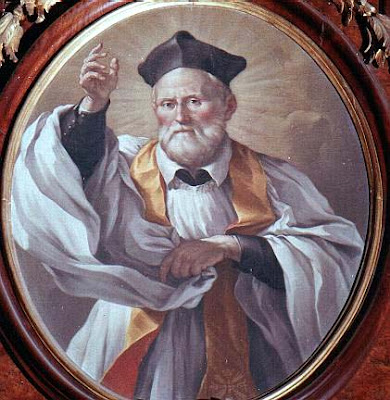The Protestant Reformation - Against God and Jesus, Pt 1
Recently,
a man of my aquaintance was told by a fellow Catholic that the Protestant, “Reformers” were justified in rebelling against the Catholic
Church, because there was a lot of sin and corruption back then.
To be clear, he was half-right. There was sin and corruption in The Church. But that does not justify Protestants furthering the sin in their own way.
Unfortunately, that
is an all too-common notion in our day, one borne of the Modernists sense of entitlement. Essentially, it says that if you don't like
something in the world, you can do whatever you want to satisfy yourself (self-justification).
Sometimes you NEED to do something, for example, as in the case of spouse abuse. But that is not what is implied in this sullen, entitlement attitude.
In
response, however, we must distinguish between genuine reform, and
schism/heresy.
We
Catholics admit there was sin and corruption in the
Catholic Church in the 1500’s, so you don't hurt our feelings by announcing that. The particular situation most often mentioned in this regard is the selling of indulgences,
which is the sin of simony. This is a liturgical and
ecclesiastical abuse which should never have happened. And the
Catholic Church, in toto, did not support nor teach her support of
simony. So it was never, the “policy,” of the Church itself. That is a modern, and often deliberate, misunderstanding after
the fact
However, we do recognize that these sinful actions were
taken by some, but by no means ALL members of the Church. They acted against the extant dogmas of the Church, which is rightfully condemnable.
Further, this is particularly condemnable because it constitutes
scandal, which in its proper, spiritual meaning is where other people
are led to sin – in this instance, by the corrupt and sinful
actions of selling ecclesiastical privileges (indulgences).
Genuine
reform in the Church – in any church - aims to promote holiness and
faithfulness, whilst rejecting sin and corruption.
But - and this is important - genuine reform of The Church happens within the
Church, in a manner that does not go against the teaching of the
Church.
The Church, to her credit, recognized the need for
reform before the Reformation kicked off. We have many strong members of the
Church in that period, such as Saint Philip Neri, called the “second
apostle of Rome,” who were working to reform the Church in Rome, by
promoting righteousness and by calling out corruption and sin.
Thus, it
is both ridiculous and false to portray the entire Church and all its
faithful members as wallowing in this sin. That's like saying ALL Americans are either Left Wing nut jobs, or Right Wing agitators, just because they are American; it's flatly untrue.
And the Church was
already beginning to police itself, instituting precedures to end the
opportunity of engaging in this sin.
As change took hold and
progressed within the Church, the most important corrections took
place at the Council of Trent, which corrected many of the abuses at
that time, and formalized oversight bodies and punitive measures that
prevented and forbade the selling of indulgences.
So thats where the Church was at the time, and some of the claims made 700 years after the fact. But, no matter how much we love a perceived underdog, its a mistake to imagine that the Protestant, “reformers” were akin to rebellious, "Star Wars" heroes in all this. They were, in fact, engaged in a grave sin, and are still engaged in that sin to this day.
More on that in Part 2, found here:
The Protestant Reformation - Against God and Jesus, Pt 2



Comments
Post a Comment